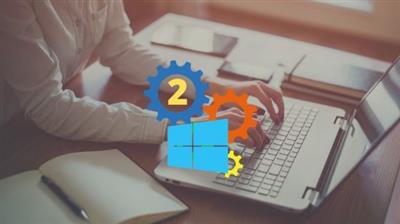
Created by TAL Mohamed | Published 7/2021
Duration: 1h50m | 5 sections | 26 lectures | Video: 1280×720, 44 KHz | 680 MB
Genre: eLearning | Language: English + Sub
You will learn Virtualization Basics | How to install ESXi 7 | How to deploy vCenter Server for VCP Course or EXAM
What you’ll learn
Create a vSphere 7 home lab on a computer using VMware Workstation 15.5
Install and Configure VMware ESXi and vCenter Server
Create Virtual Machine
Requirements
Basics of VMware vSphere
Description
This VMware lab setup for home course will walk you through the process of creating a VMware vSphere 7 lab on your home computer step-by-step. You’ll learn how to use VMware Workstation 15.5, and will create multiple virtual machines.
When you are done you will have a completely functional vSphere 7 lab environment, complete with a router, domain controller, virtual NAS device, and multiple ESXi hosts. You will also have vCenter deployed and will be able to launch the vSphere Client and manage your environment.
The vSphere lab setup for home course is about 1/5 hour in length, but if you are following along at home the process to completely build your Home Lab should take about four/five hours.
Virtualization and cloud computing are the future of our IT infrastructure. It’s important for system administrators who want to succeed to have a strong foundation in virtualization technologies, particularly in the popular virtual environment VMware vSphere, including the ESXi hypervisor and vCenter Server. With vSphere lab, you can create virtual machines that bypass the need for additional expensive hardware and provide features not available on a physical system a perfect setup for exploring new technologies and setting up test environments. This course teaches the basics of installing, configuring, and maintaining vSphere 7 lab, including installation of the ESXi hypervisor and vCenter Server using a pre-created environment called AutoLab. Following lab creation, this course introduces the core components of vSphere (ESXi and vCenter) and shows how to configure storage and networking. Finally, he runs through some typical virtual machine management tasks, such as creating a virtual machine manually vs. creating one with templates and clones, working with snapshots, and performing a vMotion migration.
Who this course is for:Anyone preparing for the VMware Certified Professional or FoundationVirtualization New UserNetwork AdminUniversity Student





